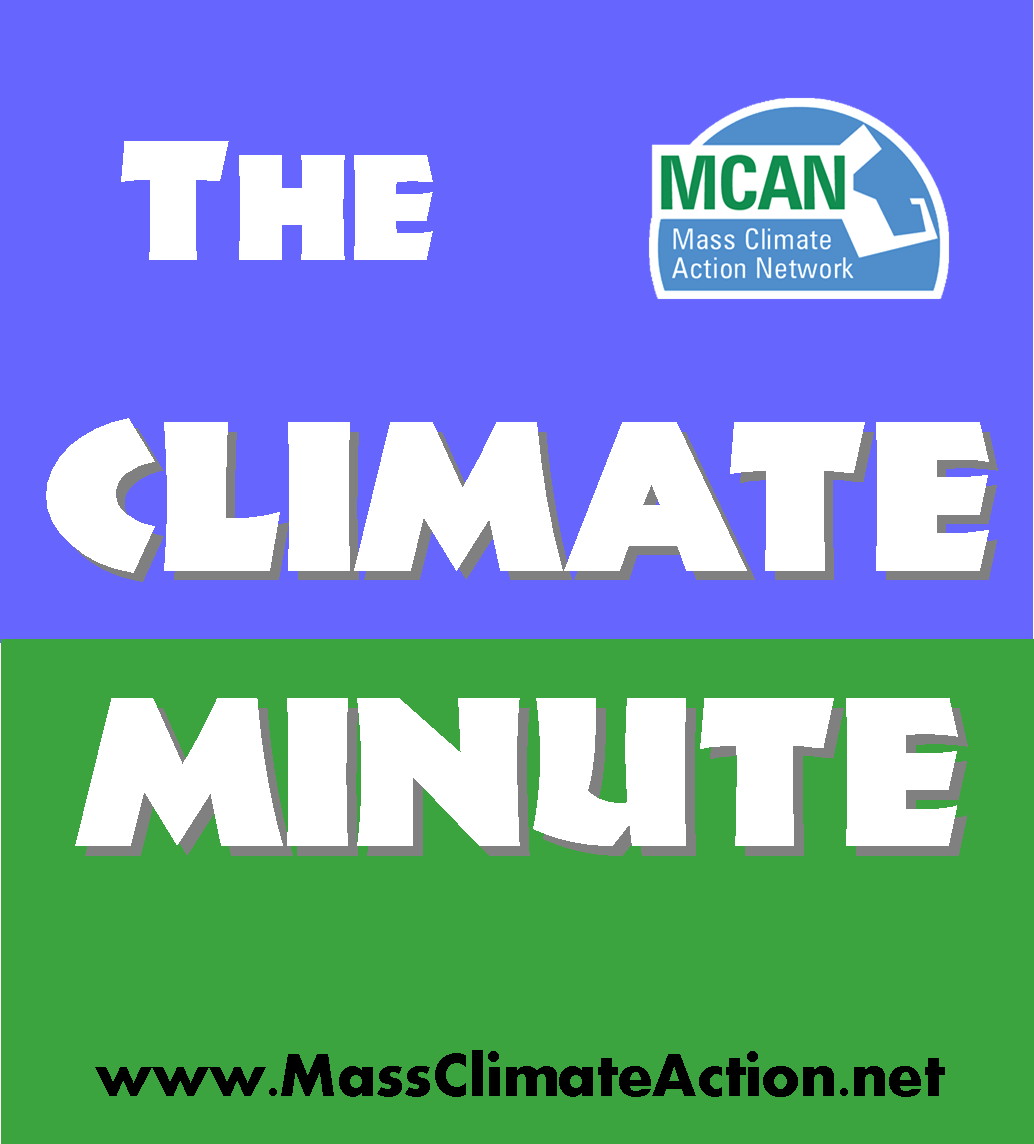

The Climate Minute
The Climate Minute - Two (and more) for the road, Arctic Icemelt, and -news flash- fossil fuels leak
2013-07-26
Welcome to this week's edition of the Climate Minute. The heat finally broke last weekend and it's been much cooler this week here in New England: last night felt almost like October! (Of course, after last week getting back to the '80s would cause you to break out the windbreaker...)This week we're at the Pink and Orange coffee house reflecting on transportation, arctic sea ice, and more examples of the folly of fossil fuels.Ted's a little concerned about his "...
Welcome to this week's edition of the Climate Minute. The heat finally broke last weekend and it's been much cooler this week here in New England: last night felt almost like October! (Of course, after last week getting back to the '80s would cause you to break out the windbreaker...)
This week we're at the Pink and Orange coffee house reflecting on transportation, arctic sea ice, and more examples of the folly of fossil fuels.
Ted's a little concerned about his "epistomoligical bubbe" in other words (that a political science major like Rob can understand), he's a little concerned that he's getting all his news from the same place.
(UPDATE: Ted sent me some additional links that talk about the "epistomological bubbles." New Republic, Bigthink, and Rachel Maddow. Enjoy!)
So to try and widen his windows Ted's been heavy on Twitter following the #climate hashtag. This week he noticed a whole slew of action about Arctic ice and the Arctic ice minimum.
In particular there was a post in a blog from New Zealand commenting about a new paper connecting Arctic sea temperatures and land temperatures in the arctic circle which raises the frightening prospect of permafrost melting and the abundant amounts of methane which would be released by that. Here's another article which suggests the cost of this melting could run into the trillions.
The free-wheeling democratic nature of twitter has led to some unexpected finds as well... If you read the blog you know that earlier this week Ted took NECN meteorologist Tim Kelley for his apparent confusion about "settled science," the physics "standard model" and climate change. You can read more about that here.
For more about the water impact of coal and nuclear power production, listen to this podcast Ted found, "The Energy Gang," which did their July 18th episode on how water considerations impact energy development. You should also check out UCS' analysis here. Energy.gov has an interesting interactive page showing a number of climate change related impacts for energy development.
In tar sands news, new analysis suggests that the oil coming through the pipeline is up to four times more carbon intense than the State Department SEIS suggests.
Here's the story on the ongoing (secret!) leak of tar sands in Alberta. In short, some 30,000 barrels of bitumen and bitumen / water mix have seeped to the surface and impacted acres of boreal forest. Speaking of leaking fossil fuels, there was yet another rig in the Gulf had an accident and lit the ocean afire...
Tesla is poised to become an rousing success story, and signals the "norming" of electric vehicles. We talked about how the first real successful hybrid, the Prius, was designed to look markedly different from "normal" cars, and Chevy Volt and the Tesla S show the market is maturing and moving beyond the early adopter community. Here's a Freakonomics article and podcast about what they call "conspicuous conservation," or the early adopter desire to look different and send social messages.
In big local news, new EPA Administrator (FINALLY) will be coming to Boston to speak at Harvard Law School. The speech is open to the public, registration required, or you can watch it live. Go here for more information.
Finally, here's our little blue dot in the wide vast universe: so small in the grand scheme of things, but really, the only planet we have (for the moment!). Photo courtesy of the Cassini spacecraft, currently hanging around Saturn.
For more information about 350MA's program of "Summer Heat" focused on the Brayton Point coal plant, check out their site here.
Remember, for climate activities near you check out our MCAN climate action calendar. You can enter events as well as browse for interesting things to do.
As always, it’s been a pleasure sharing climate news and views with you. You know, you can subscribe to our iTunes feed and get our podcasts automatically here. Feel free to give us your thoughts on our Facebook page, or through old-fashioned email. You can even follow us on twitter @MassClimate , so there are lots of ways for you to listen and participate in the dialog.
When you are on the website, please contribute to MCAN. Every dollar you give will be doubled by a generous supporter.
So we will close the way we always close, by saying that because we recognize the necessity of personal accountability for our actions, because we accept responsibility for building a durable future, and because we believe it is a patriotic duty as citizens, we insist that the US put a price on carbon. Good bye and see you next week!
Comments (3)
More Episodes
All Episodes>>Creat Yourt Podcast In Minutes
- Full-featured podcast site
- Unlimited storage and bandwidth
- Comprehensive podcast stats
- Distribute to Apple Podcasts, Spotify, and more
- Make money with your podcast
It is Free












